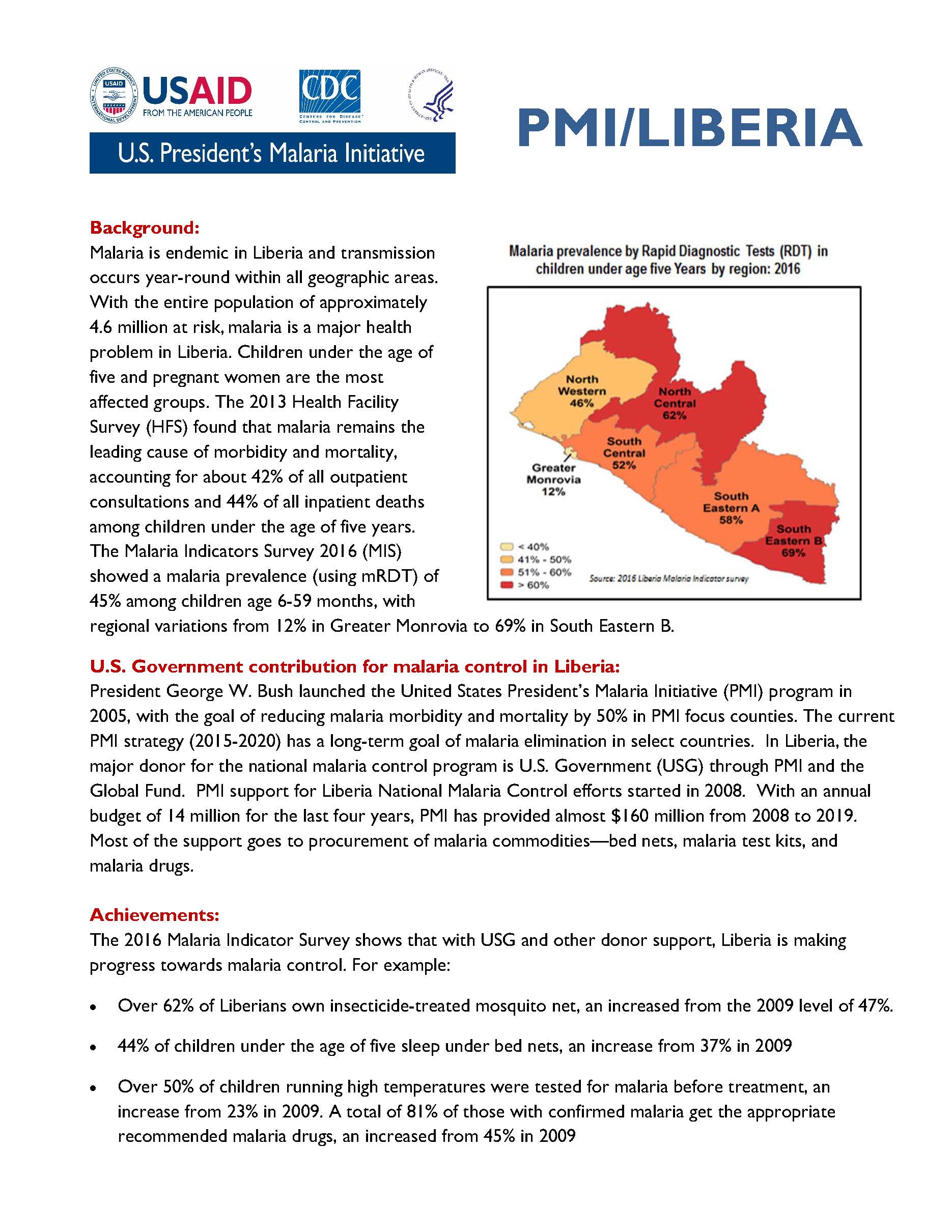Speeches Shim
President's Malaria Initiative-Liberia Activity ![]() (pdf - 289k)
(pdf - 289k)
Malaria is endemic in Liberia and transmission occurs year-round within all geographic areas. With the entire population of approximately 4.6 million at risk, malaria is a major health problem in Liberia. Children under the age of five and pregnant women are the most affected groups. The 2013 Health Facility Survey (HFS) found that malaria remains the leading cause of morbidity and mortality, accounting for about 42% of all outpatient consultations and 44% of all inpatient deaths among children under the age of five years. The Malaria Indicators Survey 2016 (MIS) showed a malaria prevalence (using mRDT) of 45% among children age 6-59 months, with regional variations from 12% in Greater Monrovia to 69% in South Eastern B.
U.S. Government Contribution for Malaria Control in Liberia:
President George W. Bush launched the United States President’s Malaria Initiative (PMI) program in 2005, with the goal of reducing malaria morbidity and mortality by 50% in PMI focus counties. The current PMI strategy (2015-2020) has a long-term goal of malaria elimination in select countries. In Liberia, the major donor for the national malaria control program is U.S. Government (USG) through PMI and the Global Fund. PMI support for Liberia National Malaria Control efforts started in 2008. With an annual budget of 14 million for the last four years, PMI has provided almost $160 million from 2008 to 2019. Most of the support goes to procurement of malaria commodities—bed nets, malaria test kits, and malaria drugs.


Comment
Make a general inquiry or suggest an improvement.